27 Jul
A small jingle to starts with giving an essence about the VPN world:
In the vast digital realm we tread,
A quest for privacy, a path we thread.
No rocket science, no codes in disguise,
Just simple words, where understanding lies.
In the web’s vast expanse, a VPN takes the lead,
A shield for your data, a guardian indeed.
China, the USA, or Timbuktu,
VPN, a global pass for you.
No need for geo-restrictions to fret,
It opens doors, no need to sweat.
In the vast web’s embrace, a VPN stands tall,
A digital ally, for one and all.
No need for technobabble, no need for fuss,
Just a simple ode to a VPN, for all of us.
The need for online security has never been greater in the vastness of the digital universe, where the lines separating the real and virtual worlds are blurring. The unsung heroes of the digital world are here: virtual private networks, or VPNs for short. Through our investigation, we hope to shed light on the world of virtual private networks (VPNs), elucidating their function, revealing their advantages, and comprehending why VPNs have evolved into a necessary tool for today’s internet users.
The Digital Frontier: A Double-Edged Sword
As we traverse the ever-expanding landscape of the internet, our digital footprints become trails of personal data left behind. While the online world offers unparalleled convenience and connectivity, it also presents risks. Cyber threats, data breaches, and privacy concerns loom like shadows in the virtual realm, waiting to exploit vulnerabilities.
What is a VPN, Anyway?
A VPN, in its simplest form, is a digital cloak that conceals your online identity and activities. It stands as a guardian between your device and the internet, creating a secure tunnel through which your data travels. This tunnel encrypts the information, making it nearly impossible for snoopers, hackers, or even your internet service provider to decipher.
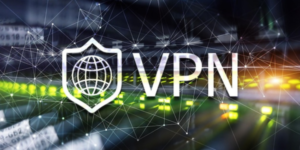
Privacy Shield: What Makes a VPN Useful?
Safeguarding Your Link:
The information sent between your device and the websites you visit is encrypted when you use a VPN. Sensitive data, including passwords, bank account information, and private messages, are shielded from prying eyes by this encryption.
Anonymous Surfing:
Have you ever had the feeling that someone is observing your online activities? Your IP address, which serves as your internet connection’s unique identity, is hidden when you use a VPN. This gives you a veil of anonymity in the digital wilderness by making your online activity practically untraceable.
Avoiding Geo-Restrictions:
By using a VPN, you can get around geographical limitations. Has the message “This content is not available in your region” ever appeared to you? Bypassing these limitations with a VPN, you can access content regardless of your physical location.
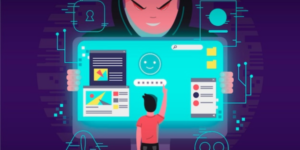
Protection for Public Wi-Fi:
Although convenient, public Wi-Fi can serve as a haven for cybercriminals. With a virtual private network (VPN) installed, using public networks is much safer because there is no need to worry about possible eavesdropping.
Selecting Your Virtual Friend: Diverse VPN Configurations
VPNs for remote access:
Remote access VPNs are perfect for individuals as they offer a safe and secure internet connection to a private network. Those who access corporate networks while on the go or work from home will find this to be especially helpful.
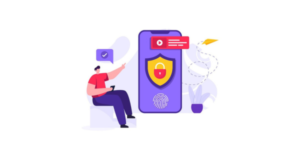
Site-to-Site VPNs:
Designed primarily for corporate use, site-to-site VPNs safely link several locations, including branch offices, over the internet. This guarantees information flow without interruption while upholding security and privacy.
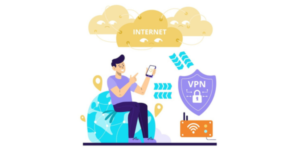
Mobile VPNs:
Tailored for mobile devices, these VPNs cater to the needs of smartphone and tablet users, ensuring the protection of data transmitted over mobile networks.
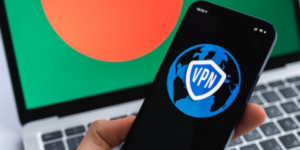
The User-Friendly Odyssey: How to Use a VPN
Contrary to popular belief, using a VPN doesn’t require an advanced degree in computer science. In fact, it’s a remarkably simple process:
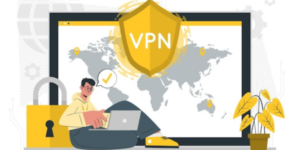
Choose a VPN Provider:
Opt for a reputable VPN service. There are many options available, ranging from free to subscription-based services. Ensure the provider aligns with your privacy and security requirements.
Download and Install:
Most VPNs offer user-friendly apps compatible with various devices and operating systems. Download and install the application on your device.
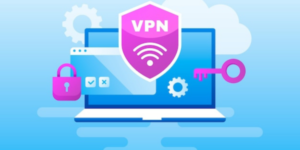
Select Your Server:
Once installed, open the VPN app and choose a server location. This determines the IP address visible to websites and online services.
Connect:
Simply press the connect button to get started. You can now safely access the internet. Knowing that your online identity is hidden and your data is encrypted allows you to browse the web with confidence.
A Moral Conundrum Concerning VPNs and Net Neutrality
VPNs provide a safe haven for online privacy, but they also bring up moral issues, especially with regard to net neutrality. There are those who contend that VPNs allow customers to get around limitations imposed by service providers, which could compromise the fundamentals of an open internet. The responsible and lawful use of VPNs is essential, just like with any other tool.
Concluding Remarks: Handling the Digital Uncharted Territory
VPNs are essential protectors of online privacy and security in the digital age, where the internet can be both a gold mine and a treasure trove. With the knowledge that their data is protected from prying eyes, they enable users to confidently navigate the digital wilderness. Adopting a VPN is a wise decision as we delve deeper into the connected world of technology. It serves as a privacy bulwark amidst the vast ocean of data. Thus, arm yourself with a digital mask, step out into the virtual world, and safely cross the digital divide.
